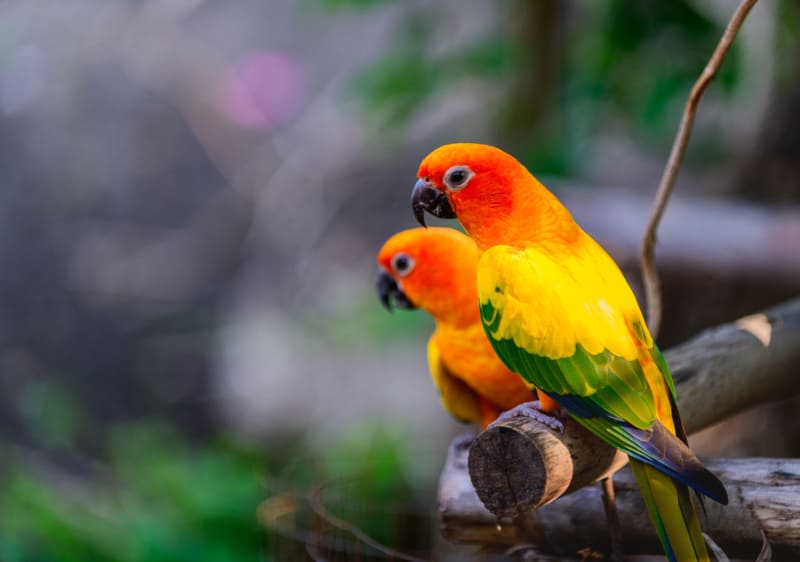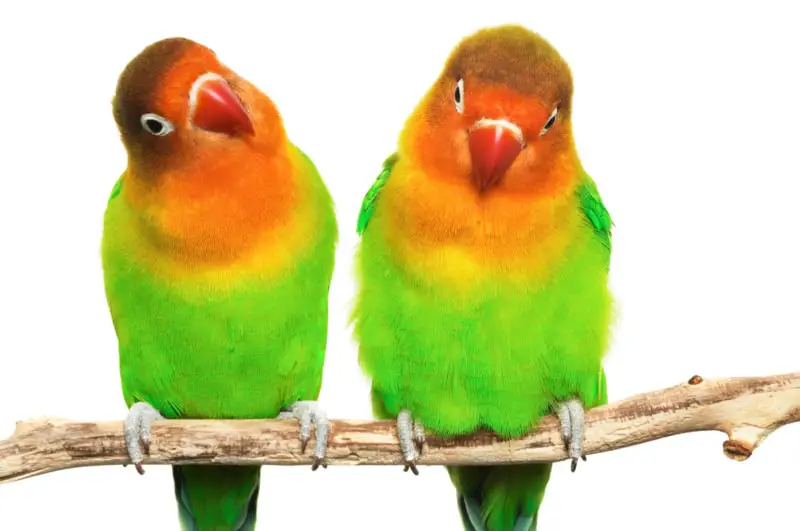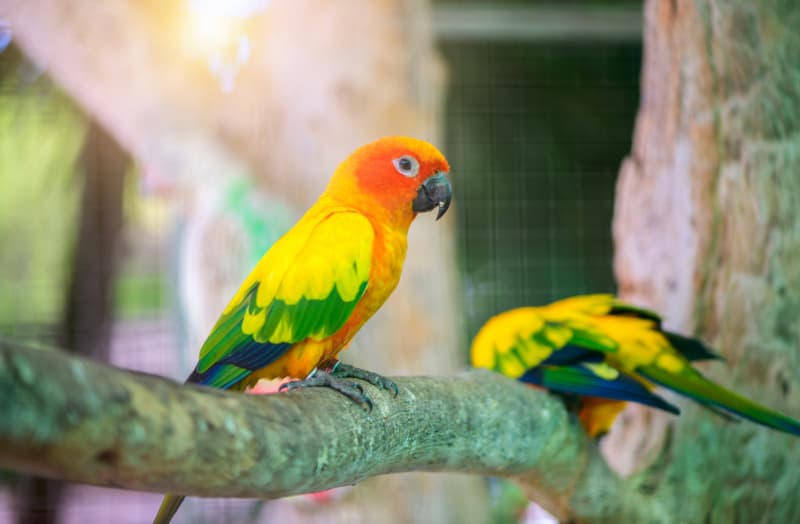Who isn’t fascinated by a cute pair of lovebirds? This is one of the most common types of parrots people get as pets. And while their beauty is undeniable, not many people consider their intelligence when bringing them home. So, to provide the essential information about this loveable breed, I’d like to discuss the topic of lovebird intellect in this article.
Yes, lovebirds are intelligent parrots and require mental stimulation on a daily basis. They prefer all kinds of parrot toys as they already get enough socialization by living in pairs. However, if your lovebird is a sole pet of yours, devote more time to the socialization skills.
Overall, lovebirds show high levels of intelligence and socializing needs. They are not the cleverest among parrots but certainly more intelligent than many other types of house pets. Of course, you have to consider each parrot’s peculiarities. Some are still more intelligent than others.
For now, let’s take a look at the different aspects of intelligence.
Are Lovebirds Easy to Train?

Among parrots, lovebirds are considered mild and tame birds. They can easily be trained when they are in a good mood. Lovebirds are responsive, attentive, and affectionate.
However, a bird might become temperamental in some instances. No matter what ruins the lovebird’s mood, take it easy on the bird. In such a situation, it won’t be educating willingly. Instead, you’ll notice the bird being distracted, frustrated, and irritated.
When you see such a moody pet, better leave it alone or provide some care- pet the parrot if it allows it. If not, just walk away. Also, with lovebirds, I find that singing their favorite tune helps to improve the mood!
Experiment with different toys and exercises during training to find out what your parrot prefers. It’s better to combine training with just a bit of fun. Parrots require proper rest as well.
Are Lovebirds Cheap? How Much for a Parrot?
Do Lovebirds Talk?

Although you can meet a talking lovebird once in a while, this is rare. In most cases, these parrots are relatively quiet. They do possess an ability to mimic human speech but don’t really have a natural inclination towards it.
So, if you are looking for a talking parrot type precisely, a lovebird is not a good choice for you.
However, you’ll notice your bird mimicking certain household noises and tunes the bird hears often. And this is more natural for them. Lovebirds do use vocalization for socializing and do mimic stuff. Just not the words.
If you are determined to teach your lovebirds at least one word, you’ll have to be patient. Consistency and time are your best friends.
When teaching a parrot human words, choose something simple for starters and repeat the word n a clear tone. Slowly. If your pet wishes so, it’ll pick up that word, but not soon. Thus, I hope you will learn to love lovebirds just as they are!
On the other hand, lovebirds being relatively calm birds, you can have them in an apartment. They are quiet compared to the Umbrella Cockatoo that I’ve described n the previous article.
Can Lovebirds Recognize Owners?

There are two scenarios that can play out.
- You get one lovebird; you constantly socialize and make a deep bond.
- When you get a pair of lovebirds; they spend most of their time socializing with each other, and your bond with them is not as strong.
These two are generalized scenarios. Of course, the depth of your bond with parrots is affected by many aspects, and you may or may not form a deep bond anyway.
In any case, the bird will recognize you as a part of its flock. Thus, she’ll be able to recognize your voice even from afar. It’ll also recognize your presence visually.
Moreover, lovebirds can learn to recognize several people. So, a big family can all bond with the bird and expect its love.
To ease it all for the bird, talk to it more often. After all, vocalization is lovebirds’ main way of communication. It’ll learn to recognize you faster this way.
A Full List of Lovebird Types (With Photo and Video)
In Conclusion
In the end, I’d like to highlight how great of a parrot lovebird is. Aside from its beauty (which is rather obvious, duh!), you can count on its intelligence. You’ll never have a dull day with a lovebird or two living in your home.
You can teach it a few tricks and generally play together. These are active birds who need a lot of attention. So, they either should live in pairs, or you should occupy them every day for hours.
The only possible downside of a lovebird (but only for some people) is its poor human speech mimicking skills. This one is not the best talker. When looking for a bird to train to speak, choose another one of the many talking parrots I’ve described before.


